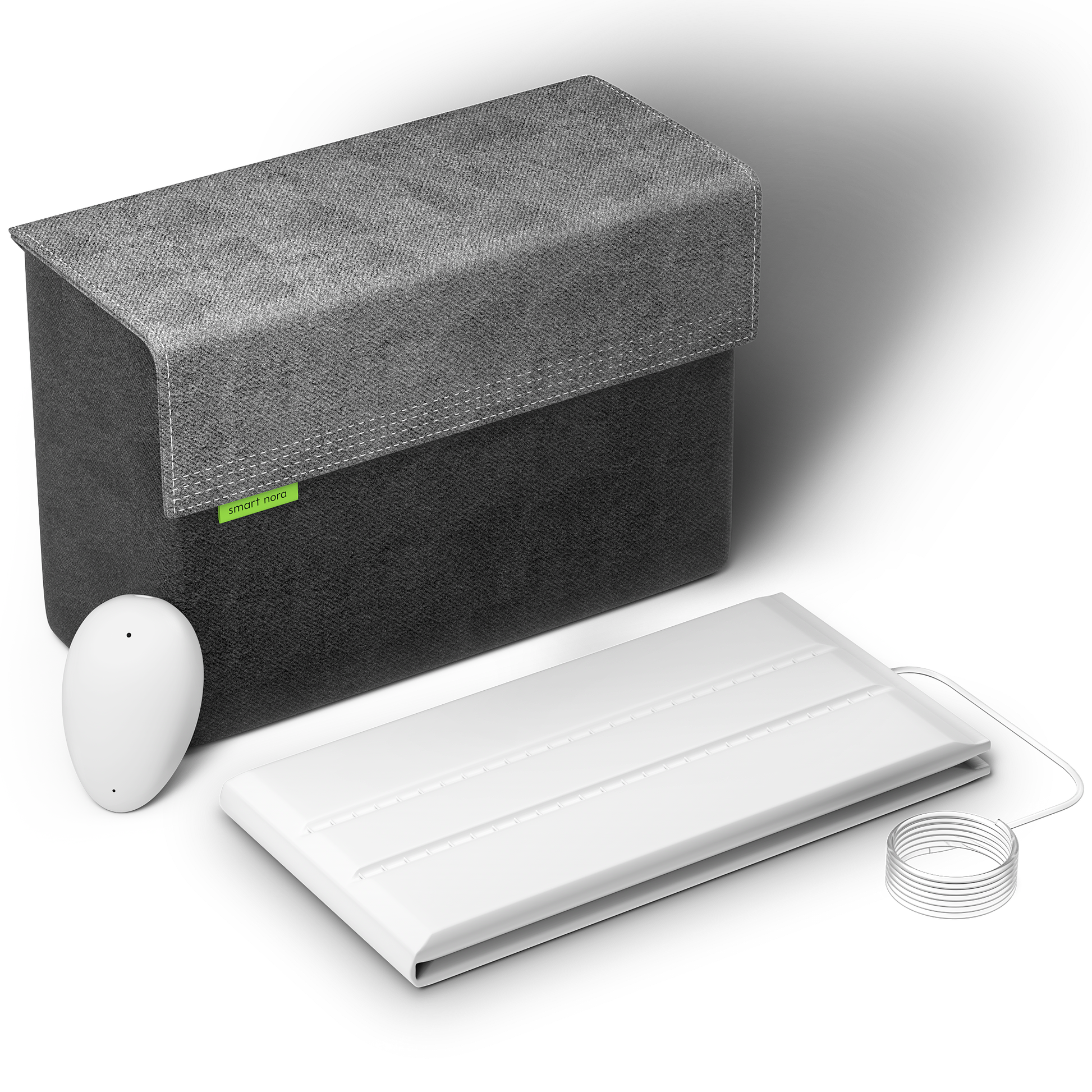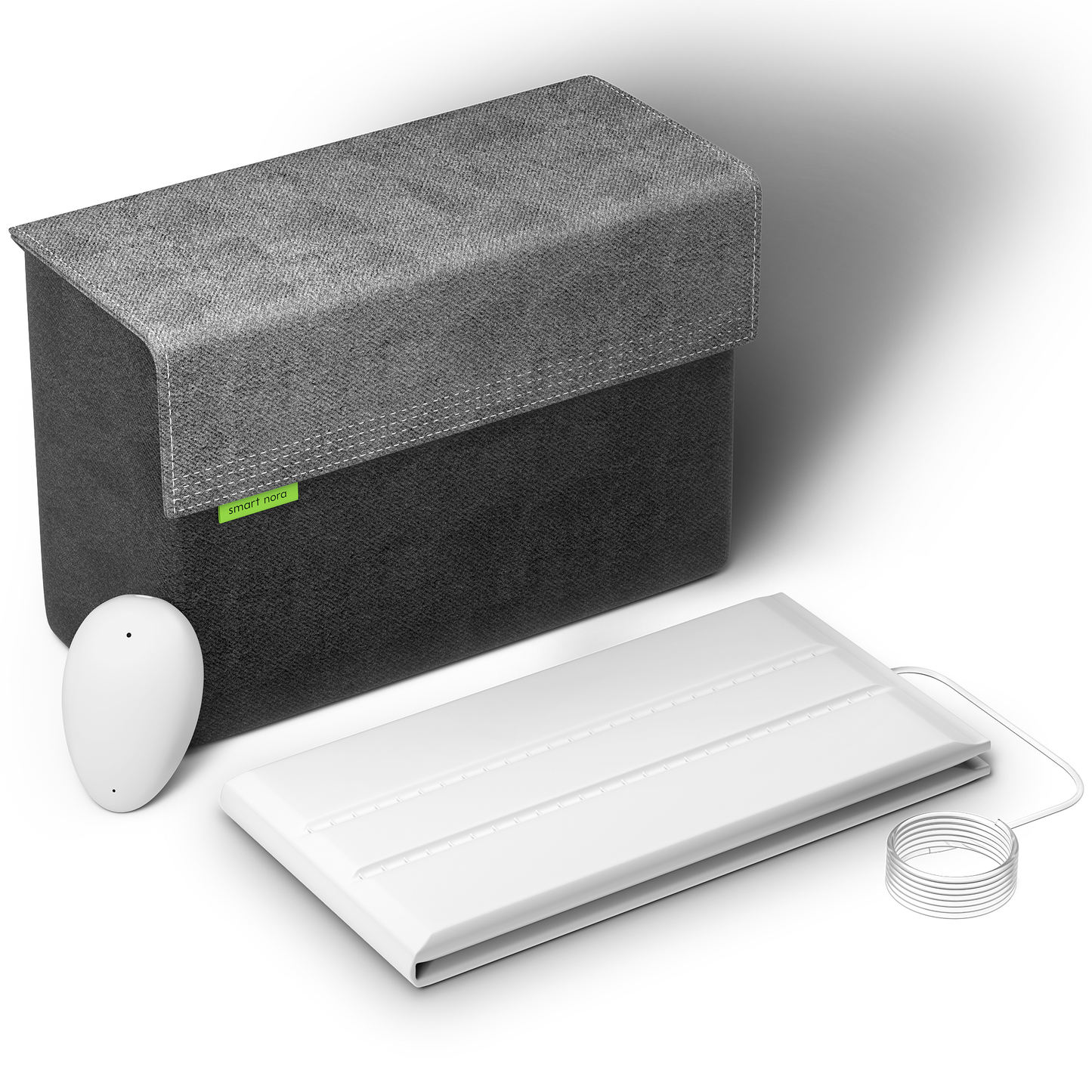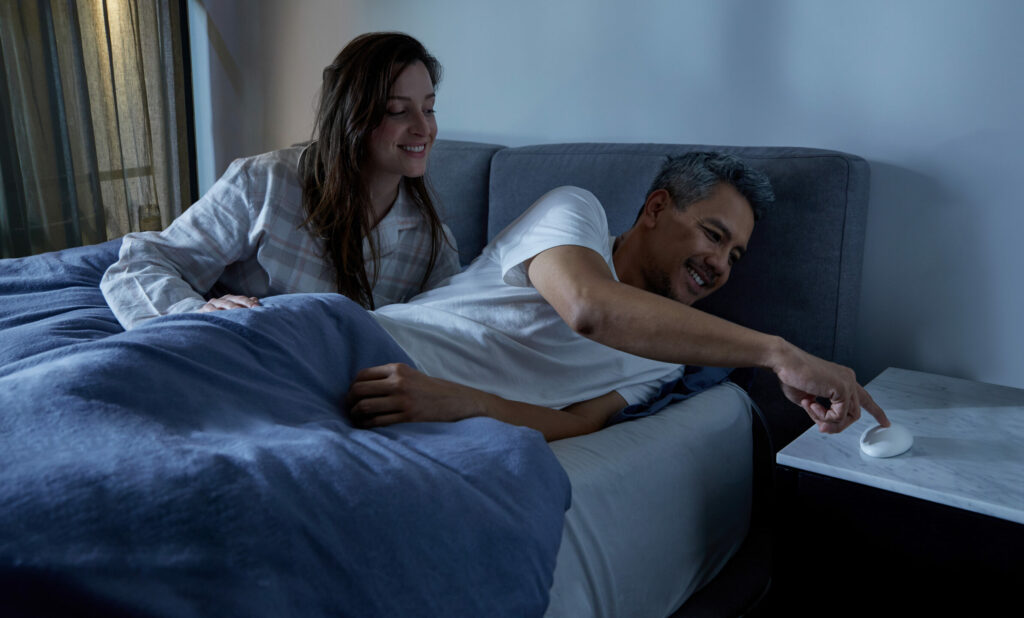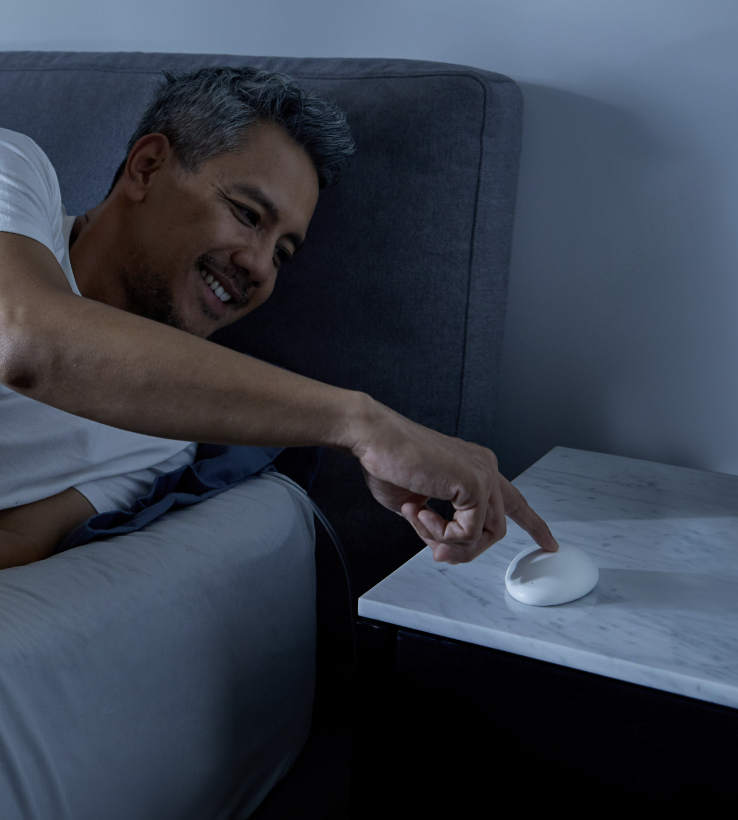
Getting a good night’s sleep can be interrupted by a myriad of issues from snoring to stress, a bad mattress to insomnia. No matter what your issues are, you’re not alone—the majority of American adults fail to get the CDC’s nightly recommended 7-9 hours of sleep each night. Though it can be difficult to get back on track, there are many different ways to get your brain on a better sleep/wake schedule with well-researched and regulated pharmaceuticals or over-the-counter drugs that might just be the key to saving your sleep. One unexpected development has been the use of antidepressants as sleep aids. Trazodone has made an impact on sleep medicine because of its shift from its original intended use to its current one as a sleep aid. So, should you try trazodone for sleep?
Why Use Trazodone for Sleep?
Trazodone is a prescription medication used primarily as an antidepressant, though it is now common for doctors to prescribe it to help treat sleep disorders, primarily insomnia. This prescription drug affects how easily you fall asleep and how long you stay asleep for, though it is considered “off-label” when used as a sleep aid because it is not approved by the FDA (U.S. Food and Drug Administration) despite its acceptable use as one. In fact, because of its powerful sleep-inducing effects, it is used more often as a sleep aid than an antidepressant.
Developed in the 1960s as an antidepressant, it wasn’t very favorable in the medical community because of its side effects. It fell into obscurity until tests administered at a lower dose showed promise. In 1981 it was approved by the FDA under the name Desyrel for treating major depressive disorder. Today, it is almost entirely prescribed under the name Oleptro and used to treat insomnia and anxiety disorder.
Serotonin and Trazodone for Sleep
One of the main things trazodone for sleep helps with is regulating serotonin, a neurotransmitter that helps your brain cells to accurately communicate with each other. While not considered an SSRI (“selective serotonin reuptake inhibitor”), which works by increasing the levels of serotonin in your brain so that you can more actively carry signals between neurons, it functions very similarly. One of the reasons that SSRIs are so common now for treating sleep disorders is serotonin’s correlation with sleep—our body uses serotonin to synthesize melatonin, the substance that controls our sleep/wake cycle and helps us know when we’re supposed to be sleepy or wakeful.
In fact, people with lower serotonin levels tend to experience less REM cycles during deep sleep, leading directly to less-rested nights, less stored long-term memory, and a higher propensity for excessive daytime sleepiness. While trazodone for sleep is not technically an SSRI, it still has the ability to modulate your serotonin receptors and inhibit serotonin reuptake, which helps keep your sleep patterns well-regulated.
Quick disclaimer: If you suffer from any sleep disorders, especially insomnia, it might be wise to inquire with your primary care physician about whether trazodone for sleep is right for you.
Side Effects of Taking Trazodone for Sleep

Luckily, trazodone is not considered addictive, but there are other side effects you should be aware of when taking the drug. Like many prescription drugs, there are a host of potential side effects that can accompany your newfound ability to fall asleep and stay asleep through the night, including:
- Drowsiness and/or feeling groggy the following day
- Dry mouth
- Dizziness and an increase in the risk of fainting
- Constipation
- Headaches
- Fatigue
- Blurred Vision
- Disorientation
- Anxiety, Heart rhythm disorders
- Weight gain or loss
- And more!
These are all fairly uncommon, though the most serious possible side effect is worth noting: Serotonin Syndrome.
What is Serotonin Syndrome
Serotonin syndrome occurs when the high levels of serotonin accumulate in the body. This can happen from the over-stimulation for your receptors, and is especially viable in people who use trazodone for sleep, as it is notably unregulated compared to other antidepressants and SSRIs. The Journal U.S. Pharmacists notes, “Serotonin syndrome (SS) is caused most often when certain antidepressant agents are taken concurrently with other drugs that modulate synaptic serotonin levels. When patients take two or more antidepressants from different pharmacologic classes, drug-drug interactions may occur; these interactions may lead to potentially severe serotonin toxicity or serotonin syndrome.” It’s important to talk to your doctor about how drugs may interfere with one another before you start taking them.
Getting Enough Sleep Matters

Sleep deprivation is a serious issue that can drastically (and negatively) affect your mood, memory, and health. Even a single missed hour of sleep can have a notable effect. When you’re tired, your concentration, working memory, mathematical capability, and reasoning skills are all compromised. Your work performance and concentration suffer as well, as short-term memory becomes less acute and your ability to focus on a single task for a long period of time suffers. Without the necessary 7-9 hours that the CDC suggests, you’ll simply lack the energy to do what you need to do, whether that’s work or play. Even a small amount of insufficient sleep can lead to an increase in health risks.
Trazodone For Sleep
If your sleep is being negatively affected, whether it be from work-related stress, sleep disorders, or anything else, it’s important to take steps to get back on track so you can live a healthy, refreshed, and fully-alert life! It’s easy to lose sleep, but there are lots of proactive things you can do to find comfort in climbing in bed. If you’ve tried out all the simplest things you can do right away to change your sleep habits, using trazodone for sleep might be the key to unlock your perfect night of sleep. It’s safe, it’s widely used, and it just might boost your positive outlook on life.











